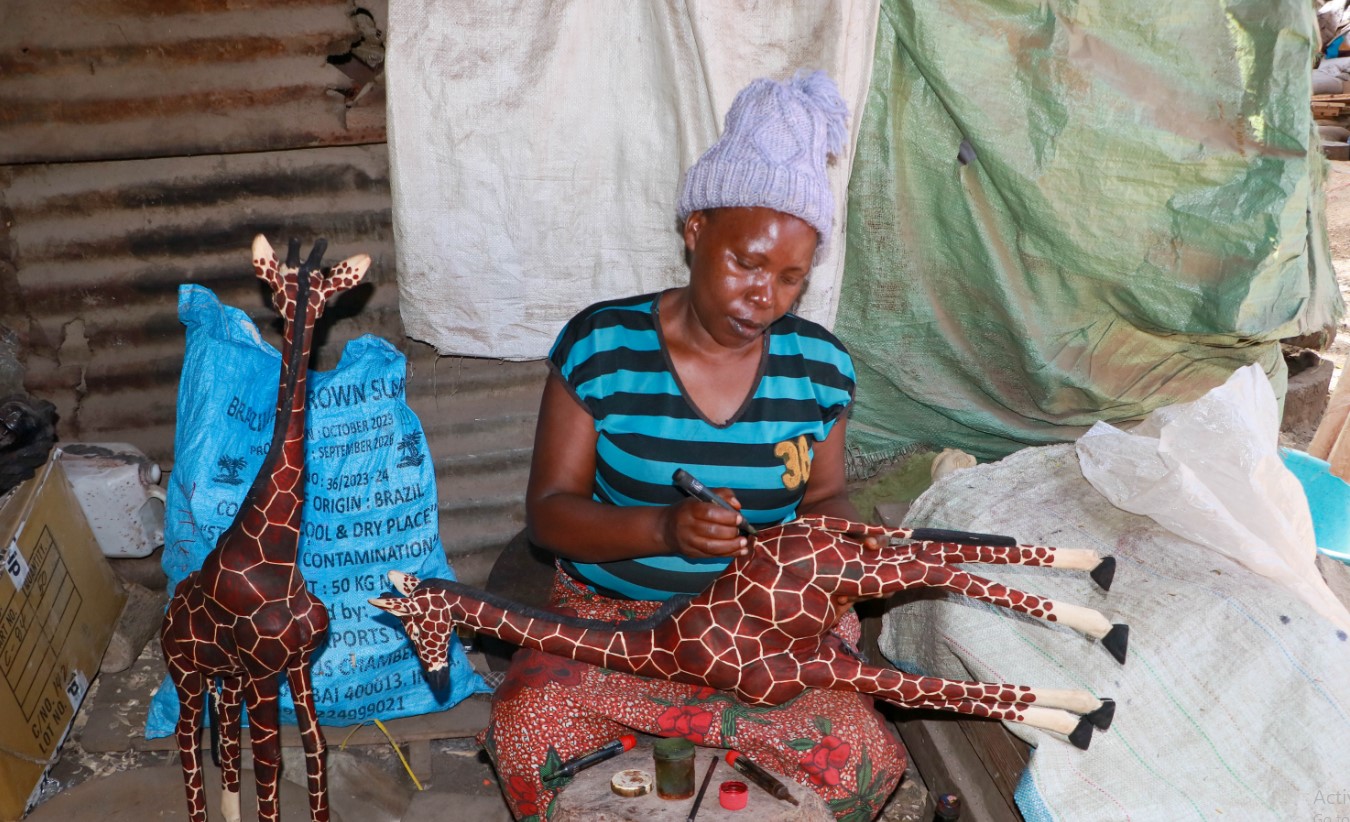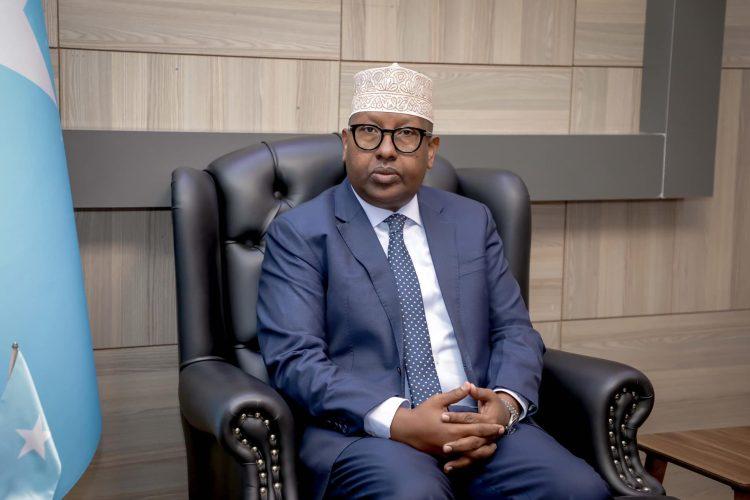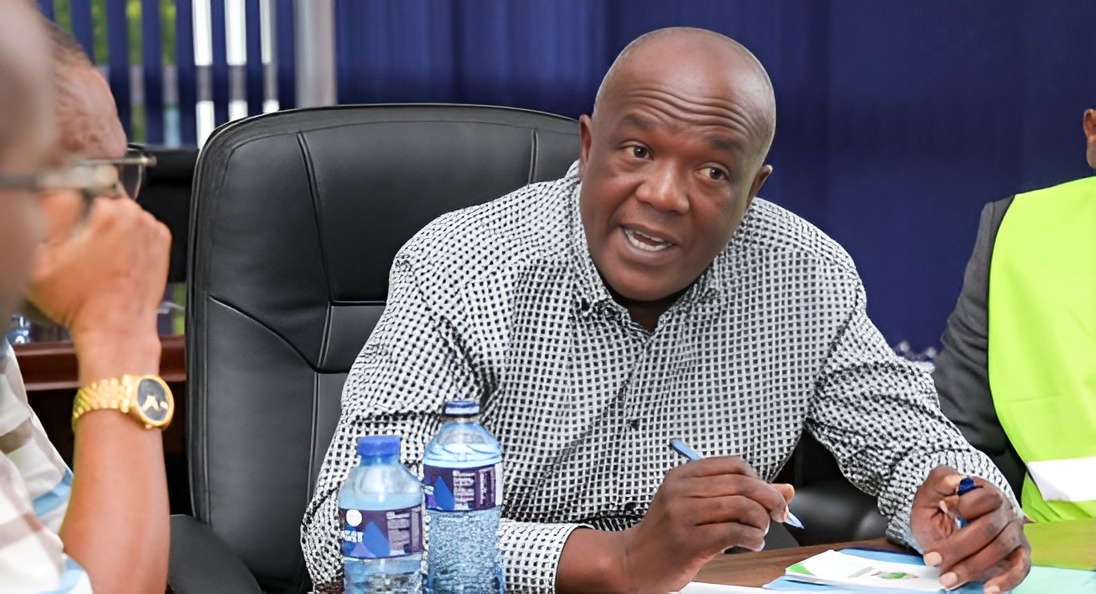After demolitions, now power outage adds to woes facing Kamukunji artisans

The artisans are required to raise Sh2.1 million for a transformer dedicated to their cooperativethat that would give them reliable power supply.
Francis Kyule works in silence with his hands moving methodically as he puts the finishing touches on his latest sculpture.
But even as does his work, he is also preoccupied with the growing challenge of working without electricity, which for nearly three months now, has become all too common at the Nairobi Handicraft Cooperative Society in Kamukunji Constituency.
More To Read
- Ngara traders count heavy losses after overnight demolition of over 2,000 market stalls
- Creativity in crisis: Kitui village artisans fight to save Nairobi’s craft heritage after market fire
- Kamukunji's quiet triumph: How community effort revitalised a historic Nairobi space
- Isiolo Governor condemns demolition of homes, accuses Isiolo OCS of abuse of power
- Jua kali workers to receive formal certification under proposed law
- Workers in informal sector to receive regulated wages, pension in new govt plan
Since joining the cooperative in 1990, Kyule has until now never known the struggle of working in darkness. He was accustomed to meeting deadlines with ease, often working long hours into the night. But the power blackout has now disrupted his routine for nearly three months, leaving him grappling with new obstacles.
“Now I have to figure out where to do the final touches on these sculptures which are heavy, and the extra manual work makes the process not only unprofitable but unsustainable.”
Sculpting is a delicate art that requires more than just skill; it demands precise tools and techniques, many of which rely on electricity. Tasks like sanding, cutting the wood, and adding the final, intricate details that make the sculptures shine are all but impossible without power.
Kyule and other artisans are now forced to complete these tasks manually, which not only diminishes the quality of their work but also makes it significantly more time-consuming.
“The lack of electricity has severely interfered with our craft as manual finishing does not produce the same results and takes much longer. It’s a constant struggle and has a real impact on our ability to create high-quality pieces,” Kyule says.
As you walk through the Nairobi Handicraft Cooperative Society, the mood is sombre. Machines that should be buzzing with activity are now covered in dusty gunny bags, their operators scattered around, waiting in hope for power to return. The workshop, once a lively place of creativity, now feels subdued and still.
In one corner, Daniel Musyoki is working on a giraffe sculpture. Even though he is focused and skilled, the absence of electricity makes his job harder. His hands are steady, but the frustration is clear in his voice.
“We’re struggling; our work has become so much harder. Ever since the demolition of a part of the workshop, our revenue has dropped. And now, without electricity, our costs are through the roof, and we're barely making ends meet,” says Musyoki.
Musyoki is perplexed by how long it has taken to install a transformer after the one that used to serve them which was removed after it was affected by overloading.
“We’ve been paying for electricity, so I don’t understand why it was taken away. At first, we thought the blackout would be short-lived, but months have passed, and it’s only getting worse. We depend on our sales, and without the power, we’re suffering,” he says.
The power outage has forced Musyoki and his colleagues to work manually. Tasks that were once quick and efficient with machines now take far longer, impacting both the quality of their work and their income.
“We need help. The government should come to our rescue and fix the electricity issue. We need to work properly to support ourselves and keep our business going,” he says.
Dorcas Mwikali is visibly upset as she talks about the heavy toll the power outage has taken on their lives.
“We’re struggling right now. The lack of electricity has slowed everything down, and some people have had to leave because there’s just no work for them anymore,” she says.
She notes the power outage has had a deep impact on their daily lives.
“Our money flow has dropped significantly. The young people who used to help us are now gone because their jobs required electricity, and it is just not available right now.”
Mwikali explains that their craft is a blend of both manual and technical work.
“We need electricity for the technical parts of our work, and without it, we’re stuck. It’s like being halfway through a project with no way to finish it.”
Her appeal to the authorities is to step in and provide the support needed to preserve their jobs
“We’re pleading for help. We’re already struggling with debts and the loss of our equipment. We need the government to step in and restore power. We’re trying to keep our business and our lives together, and without electricity, it’s just impossible,” she says.
The situation has affected more than 800 artisans, with their livelihoods hanging in the balance. Recent demolitions of their workshops, which were on riparian land, have already put them in a difficult position, and now the power shortage is making things even worse.
With no clear solution in sight, David Kilonzo, the chairperson of the Nairobi Handicraft Cooperative Society, is troubled by the ongoing crisis.
“Kenya Power has given us a quote of Sh2.1 million for a transformer that would give us a reliable power supply dedicated to our cooperative. But with the financial hit from the demolitions, we just can’t afford this essential upgrade right now,” Kilonzo says.
A document from Kenya Power which was seen by The Eastleigh Voice, confirms that the total cost of installing a new transformer is Sh2,136,623.
Top Stories Today












































